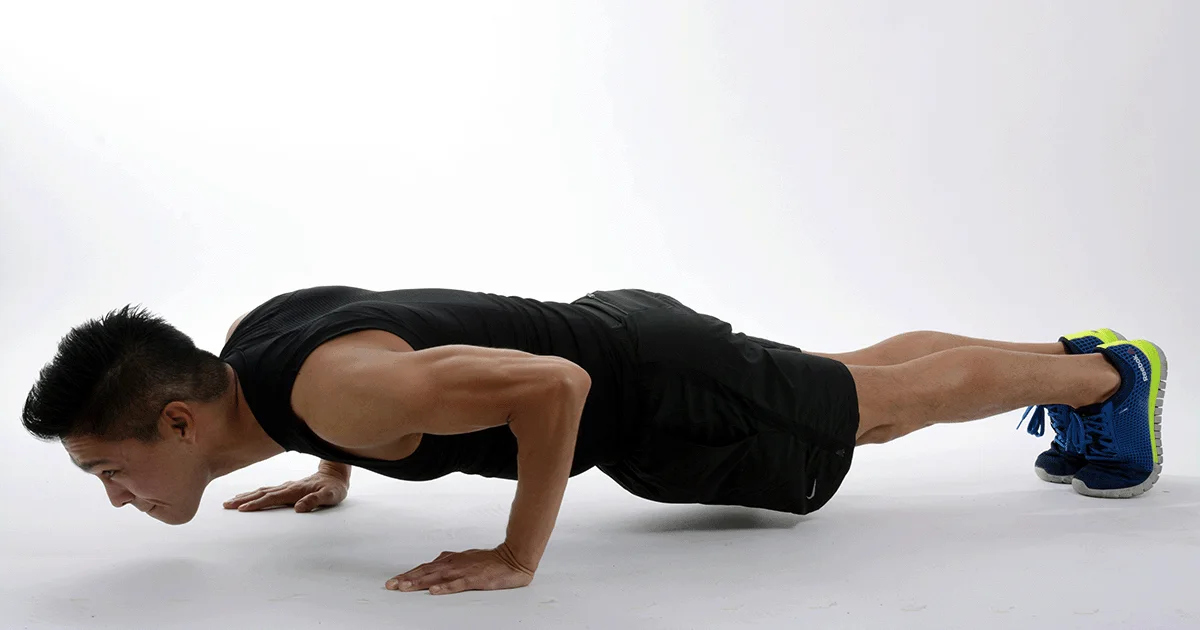Key takeaways
Losing weight won’t actually add any length or girth to your penis, but it can give it the appearance of being larger.
In addition to helping your penis look bigger, losing weight can improve your libido and erectile function and even boost testosterone.
The only ways you can truly grow your penis (assuming you’re past the age of puberty)are with surgery, injections, or a penile extender.
Here's what we'll cover
Here's what we'll cover
Here's what we'll cover
Key takeaways
Losing weight won’t actually add any length or girth to your penis, but it can give it the appearance of being larger.
In addition to helping your penis look bigger, losing weight can improve your libido and erectile function and even boost testosterone.
The only ways you can truly grow your penis (assuming you’re past the age of puberty)are with surgery, injections, or a penile extender.
Some things in life are just too good to be true. Take the question: Does your penis grow when you lose weight? The truth is, losing weight won’t actually change the size of your penis. But it can make a big difference in how much of it is visible. And that can create the appearance of a larger member.
Keep reading to get the full story on losing weight and penis size, and what other benefits might be in store if you shed a few pounds.
Does your penis grow when you lose weight?
Your penis does not grow if you lose weight. But it may appear larger when you slim down.
Most males experience the bulk of their penis growth between the ages of 12 and 16, and things typically level out by the time they’re 19 or 20, according to research. Meaning, once you reach your full length, your penis is unlikely to grow any longer (at least not naturally). That said, a small amount of growth in your early 20s is possible.
That said, losing weight can make your penis look larger. This is because excess fat in the pubic area — aka the “fat pad” — can build up around the base of your penis, hiding some of its length. When you lose weight, that fat shrinks, and more of your penis becomes visible. So while your member isn’t actually growing, it may look larger because less of it is buried.
Speaking of which, “buried penis” isn’t just a turn of phrase. It’s a condition where fat and skin tissue around the abdomen and pubic area hang down, concealing part of the penis. When a buried penis is caused by obesity or overweight, healthcare providers often recommend weight loss since it can decrease the fat and reveal more of the penis — even though the actual size of the penis stays the same.
Does losing weight help erectile dysfunction?
Yes, losing weight can help with erectile dysfunction (ED), particularly if you have obesity or overweight.
Simply put, excess body weight can interfere with several areas of sexual function. For starters, it can impair blood flow throughout the body — including to the penis — which makes it harder to get and keep an erection. It can also throw off your hormone levels, lowering testosterone and potentially dampening sex drive. Plus, obesity is tied to conditions like type 2 diabetes, high blood pressure, and heart disease — all of which can raise your risk of ED.
Shedding even a small amount of weight has been shown to improve erectile function in those with obesity or overweight. Plus, weight loss may boost your confidence, which can help address ED that’s caused by mental health issues such as performance anxiety.
Does losing weight increase testosterone?
Yes again, folks! Losing weight can increase testosterone levels, particularly if you have overweight or obesity.
So what’s going on? Fat tissue contains an enzyme called aromatase, which converts testosterone into estrogen. The more fat you carry, especially around the abdomen, the more this conversion can happen, lowering T levels.
A 2024 review found that both moderate and significant reductions in body mass index (BMI) are associated with “notable” increases in testosterone levels. However, the method of weight loss may impact testosterone levels. Undergoing bariatric surgery, following a low-carbohydrate, Mediterranean-style diet, and regularly exercising were shown to be the most effective methods. However, you should discuss any potential changes to your lifestyle with a healthcare provider.
So will your penis get bigger if your testosterone levels increase? Not really. Testosterone is responsible for growing your penis during puberty (among other things), but taking testosterone as a post-puberty adult likely won’t affect penile length or girth.
Does losing weight impact sexual health in other ways?
Yes, losing weight can impact your sexual health in several ways.
Weight loss is associated with plenty of bedroom benefits like increased libido, improved erections, and more. Here’s a closer look at a few of the top sexual health perks tied to weight loss:
Boosted libido. Losing weight can increase testosterone in those with obesity or overweight. And since testosterone fuels sex drive, that hormonal bump can lead to a stronger libido.
Improved erectile function. In one study, 31% of men who lost just 10% of their body weight reported significant improvements in erectile function. A 2022 meta-analysis of five studies also found that weight loss can improve erectile function in men with obesity or overweight. This could be due to many factors, including improved blood vessel health, reduced inflammation, and boosted mental health — all as a result of weight loss.
Better sleep. In a randomized controlled trial of people with type 2 diabetes or prediabetes, reductions in body fat were linked with improved sleep quality. Weight loss has also been found to improve perceptions of sleep quality in those with obesity. The better your zzz’s, the better your sex life can be — especially if you’re dealing with sexual dysfunction. Poor sleep, on the other hand, is linked to a higher risk of ED. Plus, disrupted or inconsistent sleep has been tied to several ED risk factors, including high blood pressure, depression, and obesity.
Improved mental health. Studies show that weight loss through lifestyle modifications is associated with reduced symptoms of depression and anxiety in men and improved self-esteem and body image. And because mental health struggles can negatively impact libido and raise the risk of ED, improving your psychological wellbeing can play a big role in improving your sexual function and health.
How do lifestyle changes improve erections?
Lifestyle changes like eating better, exercising, and taking care of your mental health aren’t just good for weight loss. They can also help you experience better erections. Some lifestyle changes that support erectile function include:
Eating a healthy diet. Foods that stimulate blood flow and help support testosterone can improve your erections. The best foods for ED include items like tomatoes, leafy greens, peppers, nuts, berries, oysters, and coffee (in moderation). Avoiding foods that are fried, high in sodium, and high in added sugar can also be beneficial.
Regularly exercising. Some studies suggest that engaging in moderate-to-vigorous aerobic exercise for at least 40 minutes a day, four times a week, may improve erectile function. Additional research has found that regular exercise overall can increase sex drive and sexual pleasure.
Taking care of your mental health. The relationship between mental health and erectile function can be a two-way street. You might be stressed, which can lead to ED. Or you might be experiencing ED already, which can cause stress. In any case, psychological treatments like cognitive behavioral therapy and working on intimacy and communication skills have been shown to improve ED.
How can you make your penis grow — if at all?
While wanting a larger penis isn’t uncommon, you probably don’t need to worry about making yours grow.
Studies have found that most women don’t consider penis size to be very important when it comes to sexual satisfaction. You might have seen ads for things like penis enlargement pills, but these gas station sex pills are unregulated, potentially dangerous, and ineffective to boot.
If penis size is a real concern for you, talk to your healthcare provider. They can steer you towards safer, more effective options (if appropriate), including:
Surgery. Options for growing the penis include a surgery in which a silicone sleeve is implanted over the top of the penis to enhance girth. A study of this device, which is called Penuma, found that men who had the surgery experienced a 56.7% increase in girth and improvements in self-confidence and self-esteem. (Worth noting: This study was done by the surgeon who developed this device, though it was peer-reviewed.) There are also penile implants, which can increase penile length and width, according to research. However, most of the research on inflatable and semi-rigid penile implants has focused on their use as ED treatment rather than penile enlargement. There are risks of surgical options, including infection, scarring, issues with any device or implant, and dissatisfaction with the overall appearance post-op.
Injections. Penis filler, which typically involves injecting hyaluronic acid into the penis, can be used to enhance the girth of the penis. Like lip filler, it can make the penis appear fuller and thicker. According to one study, penis fillers increased penile girth by an average of 3.29 cm. There weren’t any changes in self-esteem or body image-related quality of life, though. This treatment will not lengthen the penis.
Penile extenders. Penile extenders are traction devices that are strapped to a flaccid penis and worn for an extended time. They can lengthen the penis, but it can take months before seeing results.
Bottom line
So, you recently lost weight, and your penis looks bigger. Can that be true? Does your penis grow when you lose weight? In a word, no. Here’s what you need to know:
Losing weight won’t actually add any length or girth to your penis, but it can certainly make it appear longer.
Fat and skin around the abdominal area can make the penis appear shorter, so losing weight will “uncover” more of the penis and make it look bigger.
In addition to potentially making your penis appear larger, losing weight can offer other benefits to your sex life, like increased libido and better erectile function.
The only way to actually make your penis larger is with surgery, injections, or penile extenders, but the benefits of these treatments may be marginal.
Frequently asked questions (FAQs)
Can losing weight make your private parts bigger?
No, losing weight will not make your private parts bigger. However, losing weight around the midsection can make your penis appear larger. Excess fat in the abdominal and pubic area can hang over the base of the penis, making it appear shorter. But when you lose weight, you also lose some or part of that fat, which can make more of your penis visible and seem longer or larger.
Will I gain an inch if I lose weight?
You won’t gain an inch — or any length — if you lose weight. One way you might be able to lengthen your penis is by using a penile extender, and even this method is unlikely to add more than a few centimeters. Other options, like surgery and filler, can potentially add girth but not length. However, if part of your penis has been obscured by fat and then you lose this fat, your penis may appear to have gained length since more of it will be revealed.
DISCLAIMER
If you have any medical questions or concerns, please talk to your healthcare provider. The articles on Health Guide are underpinned by peer-reviewed research and information drawn from medical societies and governmental agencies. However, they are not a substitute for professional medical advice, diagnosis, or treatment.
References
Arnold, P., Rust, J., Pereira, T., Good, J., & Bernie, H. (2024). (015) NO, YOUR PENIS IS NOT SMALLER: A COMPARATIVE ANALYSIS OF PRE AND POSTOPERATIVE PENILE SIZE MEASUREMENTS FOLLOWING INFLATABLE PENILE PROSTHESIS PLACEMENT. The Journal of Sexual Medicine, 21(Supplement_7). doi:10.1093/jsxmed/qdae167.013. Retrieved from https://academic.oup.com/jsm/article/21/Supplement_7/qdae167.013/7918877
Biernikiewicz M, Rusiecka A, Kałka D. Obesity and sexual desire: a systematic review and meta-analysis. J Sex Med. 2025;22(5):677-693. doi:10.1093/jsxmed/qdaf057. Retrieved from https://pubmed.ncbi.nlm.nih.gov/40163679/
Dewitte, M., Bettocchi, C., Carvalho, J., Corona, G., Flink, I., Limoncin, E., Pascoal, P., Reisman, Y., & Van Lankveld, J. (2021). A Psychosocial Approach to Erectile Dysfunction: Position Statements from the European Society of Sexual Medicine (ESSM). Sexual medicine, 9(6), 100434. doi:10.1016/j.esxm.2021.100434. Retrieved from https://pmc.ncbi.nlm.nih.gov/articles/PMC8766276/
Elist, J. J., Valenzuela, R., Hillelsohn, J., Feng, T., & Hosseini, A. (2018). A Single-Surgeon Retrospective and Preliminary Evaluation of the Safety and Effectiveness of the Penuma Silicone Sleeve Implant for Elective Cosmetic Correction of the Flaccid Penis. The journal of sexual medicine, 15(9), 1216–1223. doi:10.1016/j.jsxm.2018.07.006. Retrieved from https://pubmed.ncbi.nlm.nih.gov/30145095/
Esposito, K., Giugliano, F., Di Palo, C., Giugliano, G., Marfella, R., D'Andrea, F., D'Armiento, M., & Giugliano, D. (2004). Effect of lifestyle changes on erectile dysfunction in obese men: a randomized controlled trial. JAMA, 291(24), 2978–2984. doi:10.1001/jama.291.24.2978. Retrieved from https://jamanetwork.com/journals/jama/fullarticle/198993
Fillo, J., Levcikova, M., Ondrusova, M., et al. (2017). Importance of Different Grades of Abdominal Obesity on Testosterone Level, Erectile Dysfunction, and Clinical Coincidence. American journal of men's health, 11(2), 240–245. doi:10.1177/1557988316642213. Retrieved from https://pmc.ncbi.nlm.nih.gov/articles/PMC5675278/
Gerbild, H., Larsen, C. M., Graugaard, C., & Areskoug Josefsson, K. (2018). Physical Activity to Improve Erectile Function: A Systematic Review of Intervention Studies. Sexual medicine, 6(2), 75–89. doi:10.1016/j.esxm.2018.02.001. Retrieved from https://pubmed.ncbi.nlm.nih.gov/29661646/
Ho, T. S., & Gelman, J. (2018). Evaluation and management of adult acquired buried penis. Translational andrology and urology, 7(4), 618–627. doi:10.21037/tau.2018.05.06. Retrieved from https://pmc.ncbi.nlm.nih.gov/articles/PMC6127540/
Jiannine L. M. (2018). An investigation of the relationship between physical fitness, self-concept, and sexual functioning. Journal of education and health promotion, 7, 57. doi:10.4103/jehp.jehp_157_17. Retrieved from https://pmc.ncbi.nlm.nih.gov/articles/PMC5963213/
Kohn, T. P., Kohn, J. R., Haney, N. M., Pastuszak, A. W., & Lipshultz, L. I. (2020). The effect of sleep on men's health. Translational andrology and urology, 9(Suppl 2), S178–S185. doi:10.21037/tau.2019.11.07. Retrieved from https://pmc.ncbi.nlm.nih.gov/articles/PMC7108988/
Lasikiewicz, N., Myrissa, K., Hoyland, A., & Lawton, C. L. (2014a). Psychological benefits of weight loss following behavioural and/or dietary weight loss interventions. A systematic research review. Appetite, 72(72), 123–137. doi:10.1016/j.appet.2013.09.017. Retrieved from https://www.sciencedirect.com/science/article/pii/S0195666313003991
Li, H., Xu, W., Wang, T., Wang, S., Liu, J., & Jiang, H. (2022). Effect of weight loss on erectile function in men with overweight or obesity: A meta-analysis of randomised controlled trials. Andrologia, 54, e14250. doi:10.1111/and.14250. Retrieved from https://onlinelibrary.wiley.com/doi/epdf/10.1111/and.14250
Maiorino, M. I., Bellastella, G., & Esposito, K. (2015). Lifestyle modifications and erectile dysfunction: what can be expected?. Asian journal of andrology, 17(1), 5–10. doi:10.4103/1008-682X.137687. Retrieved from https://pmc.ncbi.nlm.nih.gov/articles/PMC4291878/
Nam, S., Stewart, K., Dobrosielski, D. (2012). Abstract 10098: Predictors of Sleep Quality Improvement Among Overweight or Obese Individuals: A Randomized Controlled Trial. AHA | ASA Journals, 126(suppl/21), A10098-A10098. doi:10.1161/circ.126.suppl_21.A10098. Retrieved from https://www.ahajournals.org/doi/abs/10.1161/circ.126.suppl_21.a10098#
Nassar GN, Leslie SW. Physiology, Testosterone. [Updated 2023 Jan 2]. StatPearls. Retrieved on July 15, 2025 from https://www.ncbi.nlm.nih.gov/books/NBK526128/
Nikoobakht, M., Shahnazari, A., Rezaeidanesh, M., Mehrsai, A., & Pourmand, G. (2011). Effect of penile-extender device in increasing penile size in men with shortened penis: preliminary results. The journal of sexual medicine, 8(11), 3188–3192. doi:10.1111/j.1743-6109.2009.01662.x. Retrieved from https://pubmed.ncbi.nlm.nih.gov/20102448/
Okobi, O. E., Khoury, P., De la Vega, R. J., et al. (2024). Impact of Weight Loss on Testosterone Levels: A Review of BMI and Testosterone. Cureus, 16(12), e76139. https://doi.org/10.7759/cureus.76139
Sarwer, D. B., Hanson, A. J., Voeller, J., & Steffen, K. (2018). Obesity and Sexual Functioning. Current obesity reports, 7(4), 301–307. doi:10.1007/s13679-018-0319-6. Retrieved from https://pmc.ncbi.nlm.nih.gov/articles/PMC6448569/
Sharp, G., Fernando, A. N., Oates, J., & McEvoy, P. (2023). Men's Experiences and Psychological Outcomes of Nonsurgical Medical Penile Girth Augmentation: A Preliminary Prospective Study. Aesthetic surgery journal, 43(2), 181–191. doi:10.1093/asj/sjac243. Retrieved from https://pmc.ncbi.nlm.nih.gov/articles/PMC9896141/
Tomova A., Deepinder F., Robeva R., et al. Growth and Development of Male External Genitalia: A Cross-sectional Study of 6200 Males Aged 0 to 19 Years. (2010) Arch Pediatr Adolesc Med. ;164(12):1152–1157. doi:10.1001/archpediatrics.2010.223. Retrieved from https://jamanetwork.com/journals/jamapediatrics/fullarticle/384064












